It’s summer in the South. The days are sunny and hot. Flowers and trees are in full bloom. Picnics and barbecues are on the calendar. Some people don’t know this, but all of these things are also appealing to wasps and bees. Want to keep bees and wasps away without using a bug spray that makes you sick? Keep reading to learn three natural ways to keep bees and wasps away.
Nothing ruins a beautiful day outdoors faster than pesky wasps and bees buzzing around. Getting stung can be painful and dangerous. Thankfully, there are natural ways to repel wasps, honeybees, hornets, and other stinging insects without using harsh chemicals.
In this article I’ll explain 12 of the best natural wasp and bee repellents that actually keep these pests away. I’ll also answer common questions about repelling bees and wasps so you can enjoy your yard safely and stress-free.
12 Natural Wasp and Bee Repellents
Here are 12 simple, natural ingredients that effectively repel bees, wasps, hornets, and yellow jackets:
-
Eucalyptus Oil – The strong aroma of eucalyptus oil deters stinging insects. Put a few drops on your skin or cotton balls placed around your yard.
-
Fresh Cucumbers – Bees and wasps dislike the acidic scent of cucumbers. Place fresh sliced cucumbers around your outdoor space.
-
Peppermint Oil – The minty smell of peppermint oil is unappealing to bees and wasps. Apply it topically or use cotton balls soaked in it.
-
Clove Oil – Clove oil’s fragrance repels bees, wasps, and other pests. Spray diluted clove oil on plants or your clothing.
-
Basil – Planting basil deters bees and wasps with its scent, Basil also works great for cooking
-
Marigolds – Marigolds’ aroma discourages bees and wasps. Red varieties work best. They’re easy to grow.
-
Garlic – Bees and wasps dislike garlic’s pungent smell. Use garlic powder, cloves, or soaked garlic water.
-
Citrus Oils – Orange, lemon, grapefruit oils create a smell that bees and wasps avoid. They’re effective even when diluted.
-
Cedarwood Oil – This woodsy oil contains compounds similar to natural pesticides. Its smell repels insects.
-
Thyme – Thyme is a low-maintenance perennial whose scent deters bees and wasps.
-
Distilled White Vinegar – The strong vinegar smell drives away bees and wasps. Put small dishes of vinegar out.
-
Citronella Oil – Popular in commercial bug sprays, citronella oil’s scent also repels stinging insects.
Now let’s go over some tips for using these natural repellents effectively to keep your yard bee and wasp-free.
Tips for Repelling Bees and Wasps Naturally
Follow these tips when using natural repellents:
-
For oils – apply topically to skin, spray on plants, or place on cotton balls around your property.
-
Check that essential oils are pure, not diluted, for best results.
-
Dilute essential oils with water if spraying directly on plants.
-
Reapply oils and other repellents frequently as they can evaporate quickly.
-
Combine different repellents like citronella, eucalyptus, and garlic for added potency.
-
Plant insect-repelling flowers like marigolds around your yard’s perimeter.
-
Put dishes of vinegar in key areas away from food surfaces and children/pets.
-
Use traps or eliminate nests if you have an active bee/wasp infestation already. Repellents work best at deterring, not removing.
Using multiple repellents together provides the strongest effects. I suggest planting some repellent flowers and herbs like basil and marigolds. Then deploy other natural repellents like essential oils around your yard and on your skin when spending time outdoors.
Answering Common Bee and Wasp Repellent Questions
Let’s go over some frequently asked questions about repelling bees and wasps:
Are bees and wasps attracted to certain colors?
Bees and wasps are particularly attracted to the colors yellow, blue, and purple. Wear less of these colors when outside and avoid using them on exteriors or planting flowers in these hues.
What smells attract bees and wasps?
Bees and wasps are drawn to sugary substances like fruit, drinks, and some scented products. Avoid heavily perfumed soaps, cosmetics, and indoor air fresheners.
What time of day are bees most active?
Bees forage for pollen most actively in the warmer daylight hours, especially mid-morning and early afternoon. Limit time outside during peak buzzing activity.
What plants repel bees and wasps?
Besides marigolds and basil, other plants like chrysanthemums, geraniums, and catnip effectively repel bees and wasps due to their scents. Mint and lemon thyme work well too.
What essential oils repel but don’t kill bees?
Eucalyptus, peppermint, citronella, cedarwood, and lemongrass essential oils all repel stinging insects but won’t kill them when used properly. Avoid clove and cinnamon oils.
When is wasp/bee season?
In most regions, bees and wasps are active between mid-spring through early fall when temperatures are warmer. Late summer into fall is peak season when nests expand and colonies reproduce.
Do ultrasonic devices repel bees and wasps?
There is little scientific proof that ultrasonic electronic repellents work well against bees or wasps. Most effective ultrasonic devices are for indoor use against rodents.
I hope these tips help you keep bees and wasps safely away so you can relax and have fun outdoors! Try mixing different natural repellents this summer for best results. And contact a professional exterminator if you have a large active beehive or wasp nest already on your property.
Plants That Attract Bees and Wasps
Bees and wasps are pollinators, so they like flowering plants. However, there are some flowers they’re particularly drawn to, including:
- Black-eyed Susan
- Honeysuckle
- Lantana
- Lilacs
- Perennial Yarrow
- Poppies
- Pale Purple Coneflower
- Sweet Fennel
- Wisteria
- Queen Anne’s Lace
- Sedum
- Snapdragon
- Sunflowers
If any of these flowers are growing near your house, especially near a deck, porch, patio, or other outdoor area, you might want to move them if you can. Also, learning more about where wasps like to nest can help you plan your garden so that it doesn’t attract wasps. See our guide on where wasps nest for more information on common places for them to lay their eggs and how to keep them under control.
Plants That Repel Bees and Wasps
Bees and wasps are repelled by the following plants, most of which have strong herb or mint smells:
If you don’t mind the strong smells, you might want to put some of these near the outdoor areas of your home that you use often to keep bees and other stinging insects away.
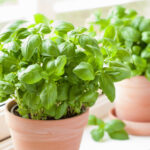
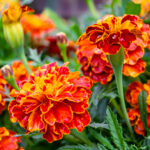
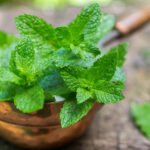
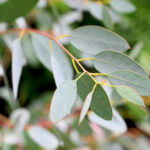
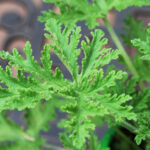
Homemade Wasp Repellent and Trap | At Home With P. Allen Smith
FAQ
How do you keep wasps and bees away?
What smell do wasps hate?
Do dryer sheets repel bees and wasps?
What is the most effective wasp deterrent?
Does a plant repel bees & wasps?
Yes. It actually works. The answer is simple- you just set up a bunch of plants that bees and wasps hate. If they hate the plant, then they’ll stay away. There are multiple ways a plant can act as a natural repellent: Does using plants really work? Yes- they work. Are you still in doubt that such a natural and simple solution can work wonders?
How do I keep bees and wasps away?
Bees and wasps naturally steer clear of plenty of natural scents, oils, and colors. So, take advantage of nature’s own repellants. Placing any of these 30 plants in your garden will keep bees and wasps away. Want more gardening tips? Sign up for our free gardening newsletter for our best-growing tips, troubleshooting hacks, and more!
Do essential oils repel bees & wasps?
If you’re looking for a natural bee and wasp repellent that also adds a pleasant fragrance to your surroundings, essential oils are the way to go. Certain essential oils, such as peppermint, citronella, or eucalyptus, are known for their ability to repel these insects effectively.
